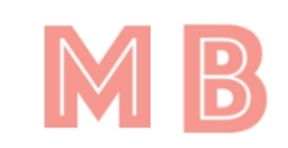March 2025: news for emerging authors
Dear readers, those of you emerging, growing, learning and becoming writers, and everyone else who just generally nosy about this free monthly column on News for Emerging Authors… welcome!
Spring has sprung and so we too must spring into action. I make no apologies for that pun and I hope it made you smile. There was so much author-relevant news last month, including the passing of the award-winning and beloved children’s author Alex Wheatle; the Booksellers Association committing to piloting a mentoring programme for candidates from the global majority to diversify bookselling staff across the country; and even The Bookseller’s own editor Philip Jones reflecting on a request for more representation from Wheatle years ago, and whether The Bookseller did enough to deliver on it.
These things are industry changing, but there is also something that has continued to crop up across all our newsfeeds, and even in my monthly rants to you all; artificial intelligence. And as is often the case with new technologies that purport to “improve our lives”, original creators and their work become casualties of “progress”. My overuse of quotation marks aside, we need to talk about it and equip ourselves to face it with the best tool we have at our disposal right now: the written word.
Authors pen open letter demanding big tech is ’held accountable’ after Meta ’trains AI on pirated books’
If you have not yet heard the news, allow me to enlighten you as to why (another) open letter to the UK government has been collated by the Society of Authors: Meta has been accused of using millions of pirated books to train their AI programmes. My book is one of many on the pirate book platform I won’t name, as are the books of most of the writers that I know. It’s distressing to think that years of work and ideas can be stolen, pulled apart and fed into a computer programme with just the click of a button. But it’s very important to consider who is pressing that button. Spoiler alert: it’s not a robot.
Artificial intelligence, though often referenced as its own thing, does not exist in a vacuum. It is used and trained and manipulated by people, and it is those same people that creators need to hold accountable. This unlicensed theft of so many books is catastrophic for the industry, but it will be much worse if the industry does not respond.
I want to encourage you to be annoying and persistent with your questions to your publishers if you can, because they have a duty of care to protect the work you have created for them
Which means it’s time to start asking questions: is your book on that website? What is your publisher doing about it? What are you doing right now to protect your works in progress, until you feel assured that any future work cannot be so easily stolen without serious legal ramifications? I want to encourage you to be annoying and persistent with your questions to your publishers if you can, because they have a duty of care to protect the work you have created for them, and this impacts not just your livelihoods, but theirs too.
Taylor & Francis to use AI translation tools to publish books ‘otherwise unavailable in English’
And don’t get me wrong, there is outrage to be had, especially with headlines like the above, where notable publishers are openly piloting AI to translate books rather than hiring actual translators. These kinds of stories can stoke fear in many of us, and translators have been discussing for years how the nuances of their skills are being dismissed for cheaper, faster, lower-quality alternatives. But guess what authors, you can do something about this too – and it isn’t by arguing about the uses of AI.
If your book baby is about to be translated into another language, make it known early on that as the creator, you would like a real life, human translator assigned to your book. As always, check your contracts to ensure you have the rights to request this (which you really should), and then exercise said rights to do just that. Do what you can to push back against the idea that AI has a one-size-fits-all capability; let them know that just because the tool is available, doesn’t mean it’s the right tool for you.
Wiley launches AI tool for authors as new partnership is announced
And speaking of tools, sometimes you have to use what you’re given. Specifically here, I am referring to the academic publisher Wiley that has released some very detailed, research specific and academically directed guidelines on using AI tools for academic texts. Having read the guidelines, this is so far the most carefully considered use of these tools that I have seen made public, to be utilised in very focused and purposeful ways for those writing non-fiction, research-heavy books.
It is no secret by now how I feel about AI, but this is still very much a judgement-free zone, especially for any emerging authors reading this, who I care about more than my dislike for that technology.
If someone is trying to steal from you, it’s because they believe what you have is worth having. So keep your eyes open, keep creating and continue demanding accountability and protection, because we all deserve it.
